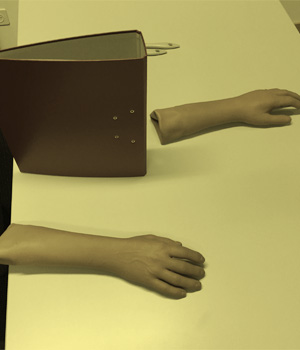The Bodily Self and its Plasticity
Short presentation
The seemingly stable construct of our bodily self depends on the continued, successful integration of multisensory feedback about our body, rather than its purely physical composition. Pathological disruption of such neural processing is linked to striking alterations of the bodily self; the body might feel like not belonging, not under control, detached or duplicated. But even in healthy participants, the bodily self is much more plastic than usually assumed and might be manipulated via multisensory conflicting situations. Using data from neurology, psychiatry, experimental psychology and virtual reality research, I will illustrate how our brain creates the sensation of embodiment and how it might fail in various instances.
Prof. Dr. Bigna Lenggenhager is Professor for Cognitive Neuropsychology with Focus on Body, Self and Plasticity at the University of Zurich. More
Related contributions


